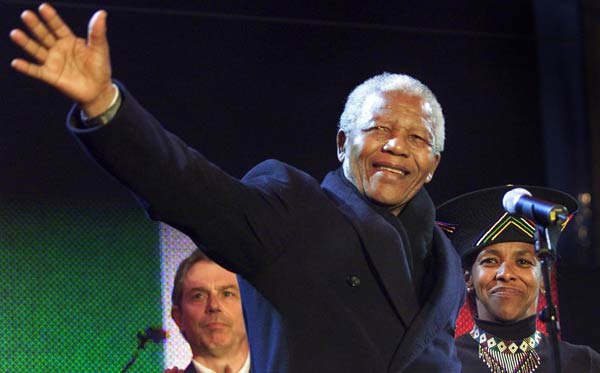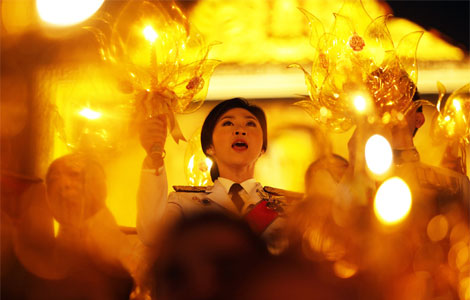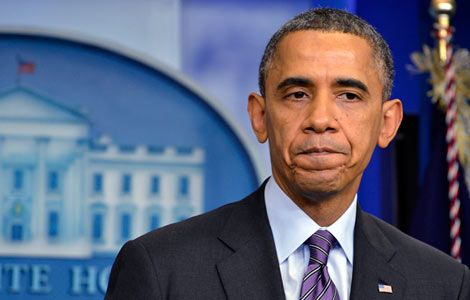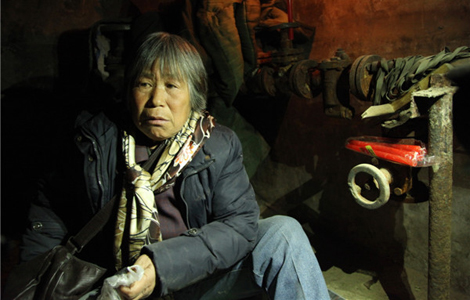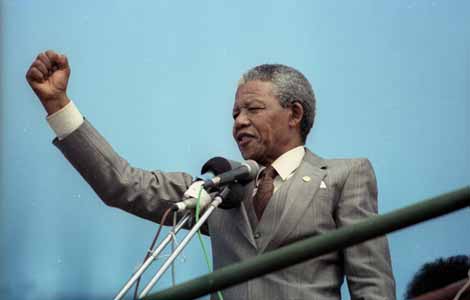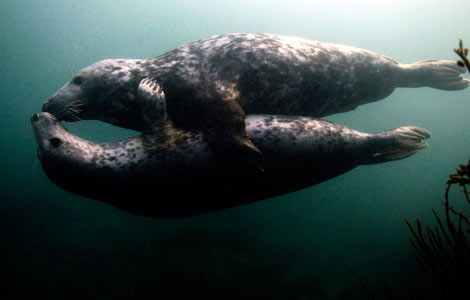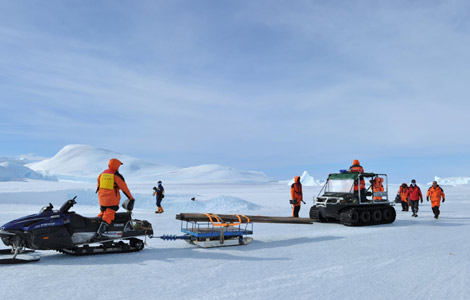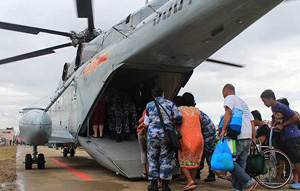Nelson Mandela has died: President Zuma
Updated: 2013-12-06 06:05
(Agencies)
|
||||||||
Former South African President Nelson Mandela died peacefully at his Johannesburg home on Thursday after a prolonged lung infection, President Jacob Zuma said.
Mandela, the country's first black president and anti-apartheid icon known in South Africa by his clan name of Madiba, emerged from 27 years in apartheid prisons to help guide South Africa through bloodshed and turmoil to democracy.
In a nationally televised address, Zuma said Mandela would have a full state funeral. He ordered flags to be flown at half mast.
"Fellow South Africans, our beloved Nelson Rohlihla Mandela, the founding president of our democratic nation, has departed," Zuma said.
"He passed on peacefully in the comfort of his home."
Mandela rose from rural obscurity to challenge the might of white minority apartheid government - a struggle that gave the 20th century one of its most respected and loved figures.
He was among the first to advocate armed resistance to apartheid in 1960, but was quick to preach reconciliation and forgiveness when the country's white minority began easing its grip on power 30 years later.
Mandela, imprisoned for nearly three decades, was elected president in landmark all-race elections in 1994 and retired in 1999.
He was awarded the Nobel Peace Prize in 1993, an honor he shared with F.W. de Klerk, the white Afrikaner leader who released from jail arguably the world's most famous political prisoner.
As president, Mandela faced the monumental task of forging a new nation from the deep racial injustices left over from the apartheid era, making reconciliation the theme of his time in office.
The hallmark of Mandela's mission was the Truth and Reconciliation Commission which probed apartheid crimes on both sides of the struggle and tried to heal the country's wounds. It also provided a model for other countries torn by civil strife.
In 1999, Mandela handed over power to younger leaders better equipped to manage a modern economy - a rare voluntary departure from power cited as an example to African leaders.
In retirement, he shifted his energies to battling South Africa's AIDS crisis and the struggle became personal when he lost his only surviving son to the disease in 2005.
Mandela's last major appearance on the global stage came in 2010 when he attended the championship match of the soccer World Cup, where he received a thunderous ovation from the 90,000 at the stadium in Soweto, the neighborhood in which he cut his teeth as a resistance leader.
Charged with capital offences in the infamous 1963 Rivonia Trial, his statement from the dock was his political testimony.
"During my lifetime I have dedicated myself to this struggle of the African people. I have fought against white domination, and I have fought against black domination.
- Mandela remains in stable but critical condition
- Mandela remains quite ill: former wife told newspaper
- Mandela film premiered in S Africa
- Mandela returns home from hospital
- Mandela showing 'great resilience', still critical
- Significant events launched to commemorate Mandela in South Africa
- Mandela manages to sit up: daughter
Most Viewed
Editor's Picks

|

|

|

|

|

|
Today's Top News
Obama to fly to S Africa for Mandela's memorial
CSRC to boost IPO reform plan
Smog gives expats second thoughts
Nations to jointly tap nuclear markets
US backs Chinese military ties
In 5 years, the world's top winemaker?
Broader economic prospects pursued
Asian Americans spend more in US
US Weekly

|

|
